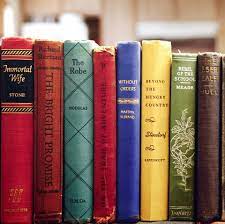Somewhat disappointing for a Booker-nominated novel! But aren’t they all recently?
Szalay tracks in a coldly observant style the life of a boy from behind the Iron Curtain who is sexually abused by a 40-something woman, the age of his mother. The boy becomes obsessed with the older woman, which leads to the accidental murder of her husband. From now on, things go downhill for the main character – although on the surface, his life trajectory is quite successful, financially, socially, and sexually. We follow Istvan, who leads a life as an “out of body” experience, unable to fully engage emotionally with his female partners. On the other hand, we see him capable of deep hatred – towards his stepson, and deep love – towards his own child. Istvan is not just an unsympathetic character. He develops into quite a monstrous person, and despite his overwhelming unhappiness, he never appeals to the compassion of the reader.
If Szalay’s intention was to show the effects of a totalitarian society and its sexually and socially frustrating system on a generation of people who got to experience the collapse of this system, the result is quite unsatisfactory. Istvan’s story could be anybody’s story. The author seems to have little, if any, knowledge of life behind the Iron Curtain.
If Szalay’s intention was to show the effects of childhood sexual trauma on the life of an innocent boy, this has already been done by Ian McEwan in “Lessons” (2022) in a most brilliant way.
